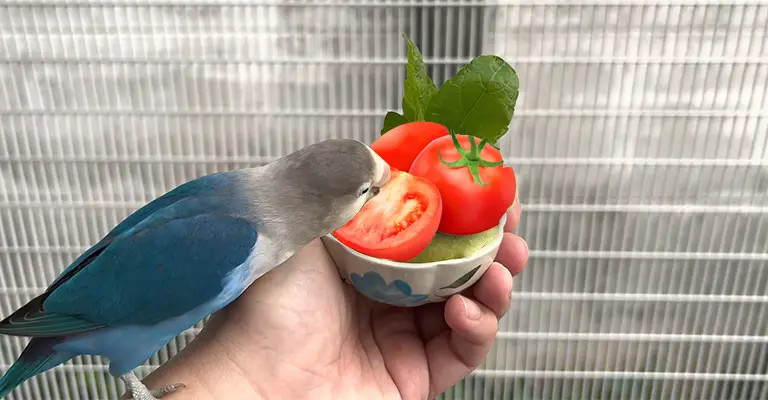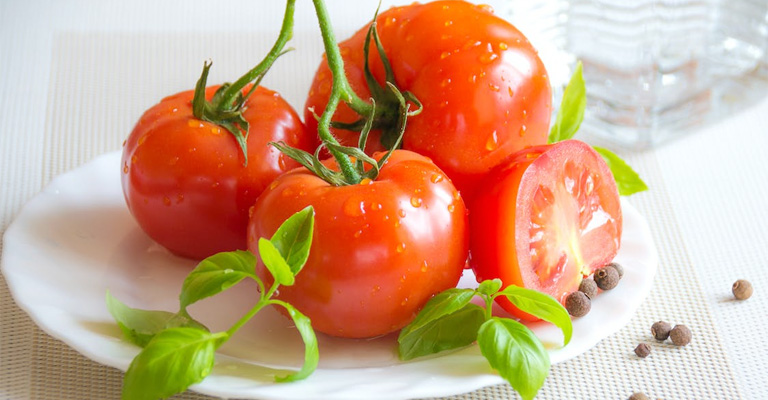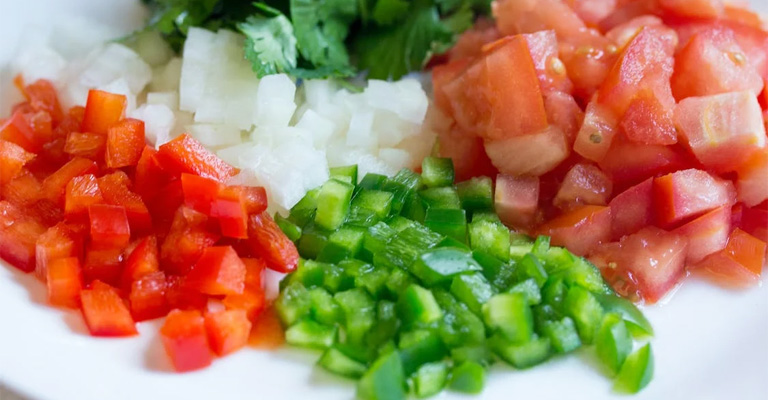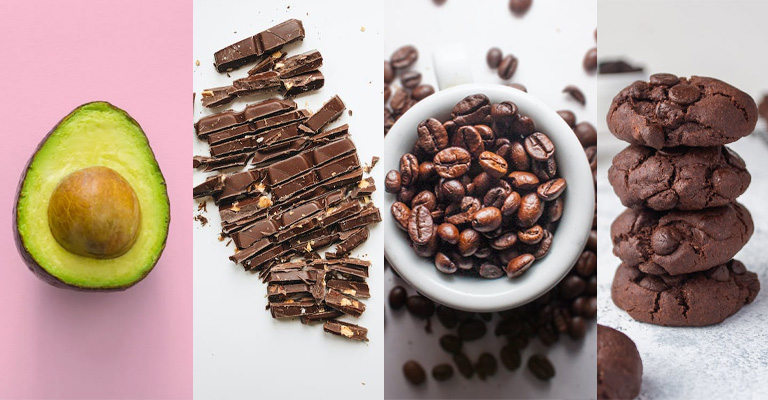Lovebirds, those vibrant and charming parrots, have specific dietary needs that their owners strive to meet. In the world of avian nutrition, many questions arise, one of which is, can lovebirds eat tomatoes?
This juicy and red fruit is a staple in many households, but is it a safe and healthy choice for your feathered friends? In this article, we’ll explore the curious case of tomatoes in lovebirds’ diets.
Lovebirds are known for their affectionate personalities and distinctive plumage, and keeping them in the best of health is a top priority for their caregivers.
Tomatoes, while often considered a healthy human food, come with their own set of considerations when it comes to avian nutrition.
Join us as we delve into the world of lovebird diets and determine whether tomatoes cut a suitable addition to their menu.

Can Lovebirds Eat Tomatoes?
Before exploring the suitability of tomatoes in lovebirds’ diets, it’s essential to delve into their natural dietary preferences.
Lovebirds, native to the diverse landscapes of the African continent, have evolved to consume a wide array of foods in the wild, which include:
Seeds
Lovebirds are predominantly seed-eating birds. Their beaks are well-adapted for foraging and cracking open various seeds, including those from wild grasses, sunflowers, and other plants.
Seeds are a fundamental part of their nutrition, providing essential fats and carbohydrates.
Fruits
In their natural habitat, lovebirds enjoy a broad spectrum of fruits. These can range from berries and figs to the wild fruits available in the regions they inhabit. Fruits add a delightful variety to their diet while contributing essential vitamins and natural sugars.
Vegetation
Lovebirds also include vegetation in their diet. They may nibble on leaves, shoots, and other types of plant matter, enriching their nutrition with fiber and a mix of nutrients. Occasionally, they might even sample flower buds, enhancing the diversity of their diet.
Insects
Insects and their larvae are a critical source of protein in lovebirds’ diets, particularly during the breeding season. The additional protein intake supports their reproductive efforts and overall health.
Understanding the natural diet of lovebirds provides valuable insights into their nutritional requirements.
When considering foods like tomatoes for captive lovebirds, it’s important to keep in mind their evolutionary diet and strive to provide a diet that offers a balanced combination of seeds, fruits, vegetables, and occasional protein sources.
Are Tomatoes Safe for Lovebirds?

Yes, tomatoes can be safe for lovebirds when prepared and offered correctly. It’s important to follow certain guidelines to ensure their safety:
Remove Seeds and Skin
Lovebirds can have difficulty digesting tomato seeds, and the seeds may pose a choking hazard. Additionally, the skin of the tomato can be tough for them to consume and digest. Therefore, always remove the seeds and peel the tomato before serving it to your lovebirds.
Moderation
Tomatoes should be considered a treat rather than a primary food source for lovebirds. Offer small, bite-sized pieces of tomato as part of their overall diet. Depending on the size and number of your lovebirds, a small piece of tomato once or twice a week is usually sufficient.
Watch for Allergic Reactions
While tomatoes are generally safe for most lovebirds, some individuals may be sensitive or allergic to them.
Monitor your birds for any adverse reactions like digestive upset, diarrhea, or changes in behavior when introducing tomatoes to their diet. If you notice any negative effects, it’s best to avoid offering tomatoes to those specific birds.
The Nutritional Value of Tomatoes
Tomatoes are renowned for their nutritional benefits for humans, and they can offer some advantages to lovebirds as well.
Tomatoes are a good source of essential vitamins, particularly vitamin C, which are vital for the immune system and overall health. They also provide vitamin A and vitamin K.
Tomatoes contain dietary fiber, which can support healthy digestion in lovebirds. This can be particularly beneficial if your birds ever experience digestive issues.
Tomatoes have a high water content, making them a hydrating choice. This can be advantageous, especially during hot weather when lovebirds need to maintain proper hydration.
Introducing Tomatoes to Your Lovebirds
The introduction of any new food to your lovebirds’ diet requires patience. If your lovebirds have never encountered tomatoes before, they might be cautious. Here are some tips for a smooth introduction.
Start with small portions of tomatoes and offer them alongside their regular food. Be consistent with your offerings, even if your lovebirds initially show reluctance. Some birds may be more willing to try tomatoes if they see their human caregivers eating them.
Remember that each bird is unique, and their dietary preferences can vary. Respect their individual tastes and don’t force them to eat tomatoes if they are not interested.
Freshness and Hydration
In addition to introducing tomatoes as an occasional treat, ensure that your lovebirds have access to fresh, clean water at all times. While tomatoes provide some hydration due to their high water content, fresh water remains crucial for their overall well-being.
It’s also important to offer fresh tomatoes that are free from mold, rot, or pesticides. Organic tomatoes are preferable when available to reduce the risk of pesticide exposure. Remove any uneaten portions of tomatoes promptly to prevent spoilage.
How to Prepare Tomatoes for Lovebirds?

Tomatoes offer certain health benefits for lovebirds, but it’s important to understand the right way to prepare and serve them to ensure the well-being of your feathered companions.
Selecting the Right Tomatoes
Not all tomatoes are created equal when it comes to feeding lovebirds. Opt for fresh, ripe, and organic tomatoes whenever possible. Organic tomatoes are preferable because they are less likely to have pesticide residues.
Avoid tomatoes that are overripe, mushy, or spoiled, as they may contain mold or bacteria that could be harmful to your birds.
Removing Seeds and Skin
Before offering tomatoes to your lovebirds, it’s crucial to remove the seeds and skin. Lovebirds, like many other parrot species, can have difficulty digesting tomato seeds.
These seeds can also pose a choking hazard. The skin of the tomato may be tough for lovebirds to consume and digest, so it’s best to peel the tomato.
To prepare tomatoes for your lovebirds, wash the tomatoes thoroughly to remove any contaminants or pesticide residues. Cut the tomato in half. Scoop out the seeds and discard them. Remove the skin by peeling it off.
By following these steps, you’ll ensure that the tomato is safe and easier for your lovebirds to eat.
Serving Size and Frequency
Tomatoes should be considered a treat rather than a primary food source for lovebirds. Offer small, bite-sized pieces of tomato as part of their overall diet.
Depending on the size and number of your lovebirds, a small piece of tomato once or twice a week is usually sufficient. Monitor your birds’ reactions and digestion when introducing new foods to their diet, including tomatoes.
Potential Risks
Tomatoes belong to the nightshade family of plants, which contain certain compounds like solanine. These compounds can be toxic in high concentrations.
However, tomatoes typically have low levels of solanine and are generally safe when prepared and offered in moderation.
It’s important to be aware of the potential allergenic reactions in some birds. While tomatoes are generally safe for most lovebirds, some individuals may be sensitive or allergic to them.
Watch for any adverse reactions like digestive upset, diarrhea, or changes in behavior when introducing tomatoes to your birds’ diet. If you notice any negative effects, it’s best to avoid offering tomatoes to those specific birds.
What Foods Are Toxic to Lovebirds?

While tomatoes can be an occasional treat for lovebirds, there are certain foods that should be avoided entirely:
Avocado
Avocado is notorious for being toxic to birds, including lovebirds. All parts of the avocado, including the flesh, skin, and pit, contain a substance called persin, which can be deadly to birds. Even small amounts of avocado can lead to severe health issues and should be avoided at all costs.
Chocolate
Chocolate, with its theobromine content, is harmful to birds as well as other pets. Theobromine can cause symptoms like vomiting, diarrhea, seizures, and even death in lovebirds.
Keep all forms of chocolate, including cocoa powder and chocolate-based treats, far away from your birds.
Caffeine
Lovebirds, like all birds, are sensitive to caffeine. Coffee, tea, and other caffeine-containing beverages can be toxic and should never be offered to them. Caffeine can lead to cardiac issues and nervous system problems in birds.
Alcohol
Alcohol is another substance that is toxic to lovebirds. Even small amounts can lead to intoxication, depression, and damage to the liver and kidneys. Never allow your birds access to alcoholic beverages.
FAQs
Can lovebirds drink any type of milk?
Lovebirds, like most birds, are lactose intolerant and should not be given any type of milk, including cow’s milk. The lactose in milk can cause digestive discomfort and upset the stomach.
What should I do if my lovebird accidentally consumes dairy products?
If your lovebird accidentally consumes a small amount of dairy, monitor them for any signs of digestive issues like diarrhea. Ensure they have access to fresh water, as drinking water can help alleviate any discomfort.
Can lovebirds drink juice or fruit-flavored beverages?
Lovebirds can have small amounts of diluted, unsweetened fruit juice as an occasional treat. Dilute the juice with water to reduce its natural sugar content. However, water should remain their primary source of hydration.
What are the signs of dehydration in lovebirds?
Signs of dehydration in lovebirds can include lethargy, increased thirst, dry or discolored droppings, and a lack of appetite. If you suspect your lovebird is dehydrated, consult with an avian veterinarian for guidance on rehydration.
Can lovebirds consume almond milk or other dairy alternatives?
Dairy alternatives like almond milk may still contain additives and sweeteners that are not suitable for lovebirds. It’s best to stick with water and occasionally diluted, unsweetened fruit juice as alternative liquids for your birds.
Conclusion
While tomatoes are generally considered safe for lovebirds in moderation, it’s essential to be cautious when introducing this fruit into their diet. Tomatoes contain a compound called solanine, which can be harmful in larger quantities.
To safely offer tomatoes to your lovebirds, tomato seeds should be removed, as they contain higher concentrations of solanine.
Tomatoes should be considered an occasional treat and not a primary food source. A balanced diet, primarily consisting of high-quality commercial bird feed formulated for parrots, should provide the majority of their nutrition.
When introducing tomatoes or any new food, observe your lovebirds’ reactions. Some birds may readily accept them, while others may need time to adjust.
If you have concerns about your lovebirds’ dietary preferences or any adverse reactions to tomatoes, consult with an avian veterinarian for personalized guidance.
Remember that the dietary needs of lovebirds can vary, so it’s essential to provide a well-rounded menu to ensure their health and happiness. While tomatoes can be a part of their diet, always prioritize balance and moderation in their nutrition.